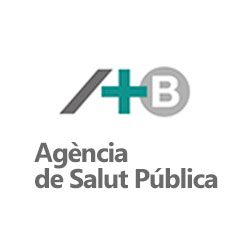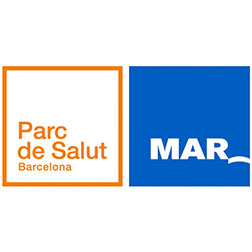30/06/2023 - 12:14
Climate emergency. Some 95% of local people will have a climate shelter within ten minutes of their home to protect them from the high temperatures.
With the arrival of summer and the hot weather, the city’s climate shelters have been activated around the ten districts, with an additional 30 of them bringing the overall number to 227. Shelters include various municipal facilities and public spaces, indoors and outdoors, open to the general public and offering a means of beating the heat and finding more comfortable temperatures.
Municipal facilities acting as climate shelters will be open until 15 September and include libraries, local facilities in neighbourhoods and districts, municipal sports centres, parks and gardens, schools and museums. While these places maintain their normal uses, they can also be used as spaces to get away from the high temperatures.
A temperature of around 27 degrees is recommended, particularly for people vulnerable to heat, such as babies, the over-75s, people with chronic illnesses or people with limited resources. These shelters have good accessibility, offer water and are safe places for people to relax in. However, they are not meant as an option for people requiring medical treatment. In this case, people should approach their local health centre.
A climate shelter ten minutes from home
There are climate shelters all around the city. This year’s figures mean that 97% of people in Barcelona have one within a ten-minute walk from their home, and 58% of people have one even closer, within 5 minutes of their home. Even so, the City Council continues to work to increase the number of facilities and activities available year after year, with an equal social and territorial spread to ensure that all local people have such facilities five minutes from their homes. Priority is being given to neighbourhoods with less coverage and with the most vulnerable populations.
In 2021, there were 197 such spaces, while now there are thirty more: 227 in all. New spaces added as climate shelters include the playgrounds of eight nursery schools (as part of the “Nursery schools for the climate” strategy), the Centre de Cultura Contemporània de Barcelona (CCCB), the Museu d’Art Contemporani de Barcelona (MACBA) and the libraries of the Universitat Politècnica de Catalunya (UPC).
Services activated to protect people from the heat
In addition to the network of climate shelters, the city’s various social services are ready to respond to people who find themselves in vulnerable situations which can come about in the city as a result of excessive heat. These services are headed by the Barcelona Social Emergency and Urgent Care Centre (CUESB).
Prevention protocols anticipate different levels of risk according to temperatures. The Barcelona Public Health Agency monitors cases of heat stroke which occur, while the CUESB acts as a point of reference when high temperatures force the preventive stage to be elevated to an alert stage or emergency stage, where the risk to people is at its highest.
In a scenario of maximum risk, the CUESB can transfer vulnerable people to climate shelters if necessary. The centre can also be used as a place for the frailest or most vulnerable people to spend the night if necessary.
Over 1,700 drinking springs
There are over 1,700 springs offering drinking water in the city. The municipal app Fonts BCN allows users to check the location of all the city’s springs to find the nearest one at any time.
Shade all around the city
Besides climate shelters, the city offers many outdoor spaces with shade, including nearly twenty pergolas covered with solar panelling and social spaces beneath them.
There are also 183 children’s play areas in the city which have shade for much of the day in the summer months, with work in progress to add seasonal shades that can be installed and removed at other areas. The creation of temporary structures to provide shade in public space is the new challenge from BIT Habitat, which is looking for innovative modular and sustainable temporary solutions to help reduce the heat and improve temperatures and comfort in public space. The project submission period is open until 14 July.
Advice to beat high temperatures
In a heatwave, follow these safety recommendations:
- Keep blinds down and open windows at night to keep the home cool.
- Freshen up often with showers and towels doused with water, use ventilators, air-conditioning and fans, and if you don’t have these, spend a couple of hours a day in cool or air-conditioned places.
- If you need to go outside, avoid the hottest hours of the day.
- Stay hydrated and eat light meals.
- Wear light clothing and use sunscreen.
- Take shelter in air-conditioned public spaces and take care of young children and the elderly.
- distintiu de refugi climàtic de la ciutat
- onada de calor
- onada de calor










